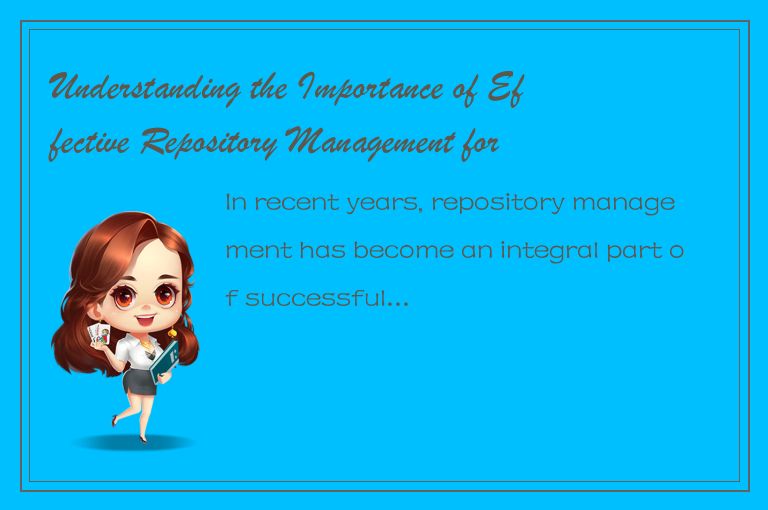In recent years, repository management has become an integral part of successful development projects. A repository refers to a central location where data or digital artifacts are stored, managed and maintained. In software development, repository management involves managing the codebase and version control, ensuring that developers have access to the latest version of the code, and tracking changes made by various developers over time. Effective repository management has many benefits for development projects, including improved collaboration, better project organization, and increased efficiency.

One of the key benefits of effective repository management is improved collaboration. With an organized repository, developers are able to easily share code and work together on a project. This can reduce communication barriers and foster more efficient collaboration between team members, regardless of their location. The ability to collaborate effectively can be especially important in large development projects, where multiple teams may be working on different parts of the project simultaneously.
Additionally, effective repository management can help with project organization. By keeping code in one central location, it becomes easier to track changes and roll back to previous versions if necessary. This can help to reduce errors and ensure that project progress is kept on track. Repository management tools typically include features such as tagging, branching, and merging, which further help to organize code base changes and facilitate project management.
Another key benefit of effective repository management is increased efficiency. With all code in one centralized location, developers can access the latest version of the codebase directly. Version control tools can help to keep track of changes made by multiple developers, which can be incredibly useful in identifying bugs and quickly addressing any issues that arise. This can help to reduce development time and ultimately lead to a more efficient and cost-effective project.
Effective repository management is also important for security. By maintaining control over access to the repository, developers can ensure that only authorized personnel are able to access or make changes to the code. This can help to protect against unauthorized access, prevent theft or fraud, and preserve the integrity of the code. Additionally, repository management tools often include features such as user management and encryption, which further enhance security.
In conclusion, effective repository management is essential for successful development projects. Repository management helps to improve collaboration, enhance organization, increase efficiency, and promote security. For software development teams, the use of repository management tools is essential in order to manage codebase and history. Developing an effective repository management strategy can be a complex task that requires the right tools, processes, and collaboration between team members. With proper management, repositories can provide a central location to store and maintain code, enabling developers to work more efficiently and effectively towards successful project outcomes.




 QQ客服专员
QQ客服专员 电话客服专员
电话客服专员